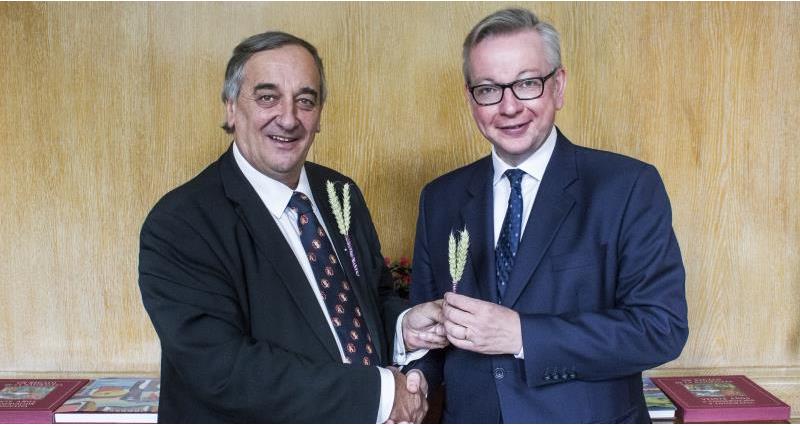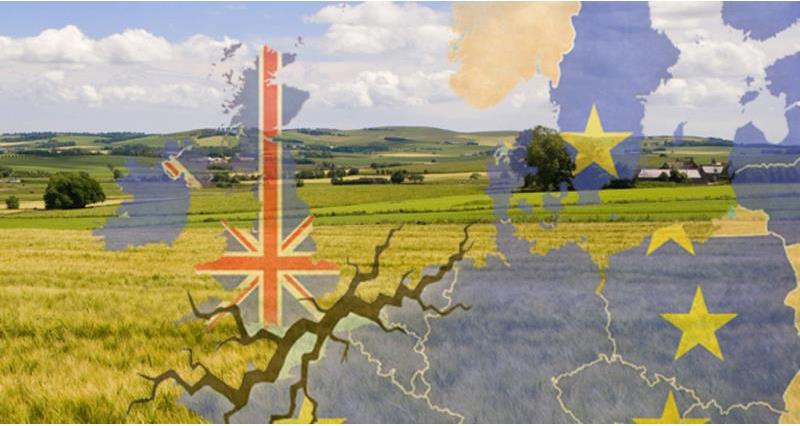With Brexit only 18 months away, the NFU says a key question British farming needs answered by government is how the transition from the current system will take place.
The NFU is urging government to set out plans early to provide confidence to the industry. The NFU’s proposed approach and indicative timeline is centered around three phases:
Phase one should deliver stability and continuity. The NFU envisages an initial two-year phase where the existing CAP measures would be largely preserved, but adjusted where opportunities for minor improvements present themselves alongside work to start testing and piloting new ideas for the new system.
The second phase presents the opportunity for review and assessment work to be carried out, while the CAP legacy schemes would continue for farmers. Crucially, at this stage it should be possible to assess the wider political environment and trading conditions farmers will face in the future following Brexit. The NFU is calling on the government to undertake a detailed analysis during this phase of the Brexit settlement and its impact on farming, as well as assessing the results of pilots and trials introduced in earlier years.
Phase three would see the switch to a new, bold and ambitious domestic agricultural policy. The precise timing of this would depend on the results of the government’s impact assessment and a clear understanding of the impact of policy changes on British farming.
MEMBERS: Read our briefing on the transition from the CAP to a domestic agricultural policy, or DAP.
This position relates specifically to Domestic Agricultural Policy, and what happens to farm support during the transition. There are of course other elements of transition that will be relevant to us, e.g. free movement of people/access to labour, trading relationship with the EU, including customs union and membership of the single market.
Read the NFU's full range of Brexit vision documents here.
 Meurig Raymond and Secretary of State Michael Gove
Meurig Raymond and Secretary of State Michael Gove
NFU President Meurig Raymond said: “We know that forming a future domestic agricultural policy presents a huge opportunity for government to set out a framework for support that promotes profitability, productivity and progressiveness on British farms.
“But at the forefront of many farmers’ minds is the shift from an EU policy to domestic one and what this will mean for their businesses. And this is why a well-thought-out transition – as set out in the NFU’s three-stage process - is vital to ensuring as much certainty and stability as possible.
“Different political decisions and their implementation will have differing impacts on farming’s readiness to move away from the current CAP. In reality, with a Brexit settlement that promotes a positive future for British farming, the first two phases could be completed in four years with a new system implemented as early as 2023. But a disruptive Brexit that damages the prospects of British farming would mean maintaining the stability of the current system for a much longer period.
“What is clear is farming’s appetite to move to a new way of doing things that promotes greater productivity on farm, protects and enhances the environment, and guards against volatility in the sector.
“However, past experience has shown that CAP reform decisions have often been implemented in a rush or in the absence of policy certainty, and have created significant delivery problems and delays to payments for farmers. Whilst it might appear attractive to make fundamental changes to the CAP schemes on day one of Brexit, the NFU feels there is a balance to be struck between ensuring regulatory stability and effective delivery of a new policy on the one hand and the ambition for tangible change in our agricultural support regime in the short to medium term post-Brexit.
“I am very pleased that our vision chimes with the Prime Minister’s recent commitment to a transitional period after the UK leaves the EU, which we hope has prepared the ground for both sides to make progress in Brexit negotiations.”
The NFU has joined with the Food and Drink Federation (FDF) to set up a panel debate to discuss ‘What next for food and farming after Brexit?’ as a fringe event to the Conservative Party Conference, on Monday 2 October - details here.
